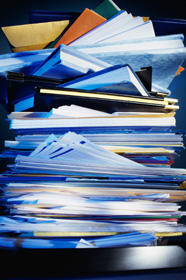There are areas of our lives that many of us keep in the dark recesses of our minds—those fears, those places of ancient wrongs. When we are young, we are shaped by what we’ve experienced. As children we see ourselves at the center of the Universe, and things revolve around us. When something goes awry, as children we may see ourselves as powerful beings that caused those events. So, inadvertently, we emerge from childhood with these distorted ideas that turn, over time, into core issues. We all have had them.
Overcoming is what evolution is about. Stuck in the rut of limits doesn’t allow for growth, like a plant in a pot that is root-bound. Our core issues bonsai the expression of what we truly are—beings of love, creativity, energy, compassion and light. While overcoming is part of the human condition, when we do overcome, it creates a torsion that propels us into the next level of awareness—a more joyful one. These levels continue as long as we are consciously seeing the limits and working, in the face of our childhood fears, to prove them wrong.
There is a big problem when the adults we’ve become are still held prisoner by those core issues—like big babies walking around in adult bodies that still want to have things in a way that is familiar, where we are not afraid. Within most adults is the fear or fears of not being enough in some way—not smart enough, beautiful enough, good enough, skinny enough, or not . . . whatever. There are many variations on a theme, but they all boil down to “not enough” in some way. And in the world one can find many ways to convince oneself that those fears are founded in reality. If you are seeing yourself as not enough, you are lacking and looking to fill that void—and the matrix of money and power makes a profit from it over and over. I’ve worked most of my adult life to let go of those hyenas of “not enough” nibbling at my consciousness, my sense of self.
I’ve come to a place where I am at the core of the core of those issues, after tilting and vanquishing those little fear hyenas that attached themselves to that core. This core is the seed of them all, and I see it. I know it, and I’m tired, oh so tired, of it. I’ve looked at where it began. And while seeing it is a big part of the journey of letting go, I’m seeing that the magic of really saying goodbye and liberating myself is in forgiveness. Deep, authentic forgiveness—of others, myself and the Source of all things. When I allow myself to know that all the players were all doing the very best they could at the time with what they had or understood—really know that deeply in my heart, I begin to truly forgive—saying it in my heart and mind and really meaning it. Knowing it. There floods in the place where the darkness was, a deep and exuberant love. Love that is so satisfying and joyful that there are no words for it. Love that bring tears of joy. Love that makes you feel clearer, purer, freer.
The “players” involved in the beginnings of these issues need never know about one’s forgiveness, and please don’t communicate it. The forgiveness is in your heart and mind. Your increased ability to love and the light that fills you is all that will be seen. Forgiving oneself is a part of the puzzle, too. Letting myself be jerked around by this core issue for decades is something that I’ve worked on to forgive myself for—the lost opportunities for joy or to express love and creativity.
I used to not get this one—why forgive the Source of all things? I used to think, “The Source or Creator is perfect. What is to be forgiven?” I finally understand why I needed to forgive Source. My perspective in human form cannot see the endless ways that things work out for the highest good. The detours that things must take sometime (due to my own freewill and the freewill of others) to reach that destination are necessary. I’ve seen that without overcoming, I could not know what true freedom and peace feels like. I wouldn’t be as compassionate. And without overcoming I wouldn’t know how it was done, and for a teacher that skill is absolutely necessary. So I’m grateful for what helped bring me to where I am.
Forgiveness is not just thinking of a person, situation or thing and saying, “I forgive.” It’s deeper and more profound than that. I found most days, I set aside a quiet time and space of about 30 minutes to ask the Universe to gently show me for my highest good, what I need to forgive and to help me heal it with forgiveness so that the light of love can stream into the situation, persons, me, etc. It’s magic, and I am not alone in this process. Right now is one of the most powerful, liberating times of my life.
Please take the time to find yourself–your true self that has been covered over or held back from your center. The world won’t be able to get to you like it used to, and you’re more available to be of service to others. As Gandhi said, “Be the change you wish to see in the world.”
©Copyright, 2017 Mary Claire O’Neal
Mary Claire O’Neal is the author of the award-winning book, Becoming What You Want to See in the World, a communication and leadership coach, consultant, Heartmath® Certified Trainer. For more information: maryclaireoneal.com






 M. K. Gandhi said, “There is more to life than increasing its speed.” One of the things Gandhi may be referring to is slowing down enough to listen. Really listen. “Slow down to listen to what?” you may ask. My answer would be many voices and yet one voice: That still, small voice within, or the same situation that presents itself over and over, or doors opening or closing, or what a child is saying with his behavior.
M. K. Gandhi said, “There is more to life than increasing its speed.” One of the things Gandhi may be referring to is slowing down enough to listen. Really listen. “Slow down to listen to what?” you may ask. My answer would be many voices and yet one voice: That still, small voice within, or the same situation that presents itself over and over, or doors opening or closing, or what a child is saying with his behavior. I’m an information pack rat, and I’m out of control. I’ve recognized that I have a fear of not having the information I need when I need it. Because of that fear, I have stacks of magazines, journals, papers, and clippings that have either practical information to make life easier (like how can you use olive oil a hundred different ways in your household and, er, how to simplify and get rid of clutter) or ideas for travel and leisure. I also hoard professional journals, thinking that I’ll find the time to read them all.
I’m an information pack rat, and I’m out of control. I’ve recognized that I have a fear of not having the information I need when I need it. Because of that fear, I have stacks of magazines, journals, papers, and clippings that have either practical information to make life easier (like how can you use olive oil a hundred different ways in your household and, er, how to simplify and get rid of clutter) or ideas for travel and leisure. I also hoard professional journals, thinking that I’ll find the time to read them all.
 What is mastery over ourselves? What could that look like?
What is mastery over ourselves? What could that look like? When we are faced with a challenge or difficulty in our lives, it’s good to give it focus so we can find solutions. However, it’s easy to slip down the slippery slope of giving the challenge too much attention so that it is amplified and magnified, appearing bigger in our perception. When that happens, it can lead to overwhelm or even fear. One really quick, easy way to regain a balance in perspective is what I call, Taking a Snapshot of the Big Picture of Your Life©. You simply start writing down everything that is good, that is working, that is joyful. Write down all the things you are grateful for in your life. Make the list as long as you can. Soon you will have a very long list. When you look at all these things, you can see more of the “big picture” of your life and then see the challenge as only one thing or area in the very large picture. This can immediately help create a balance in perspective, giving the area of challenge a more realistic proportion. This balance in perception will bring more clarity, and one can more easily find solutions, options and choices in dealing with the challenge.
When we are faced with a challenge or difficulty in our lives, it’s good to give it focus so we can find solutions. However, it’s easy to slip down the slippery slope of giving the challenge too much attention so that it is amplified and magnified, appearing bigger in our perception. When that happens, it can lead to overwhelm or even fear. One really quick, easy way to regain a balance in perspective is what I call, Taking a Snapshot of the Big Picture of Your Life©. You simply start writing down everything that is good, that is working, that is joyful. Write down all the things you are grateful for in your life. Make the list as long as you can. Soon you will have a very long list. When you look at all these things, you can see more of the “big picture” of your life and then see the challenge as only one thing or area in the very large picture. This can immediately help create a balance in perspective, giving the area of challenge a more realistic proportion. This balance in perception will bring more clarity, and one can more easily find solutions, options and choices in dealing with the challenge.
You must be logged in to post a comment.